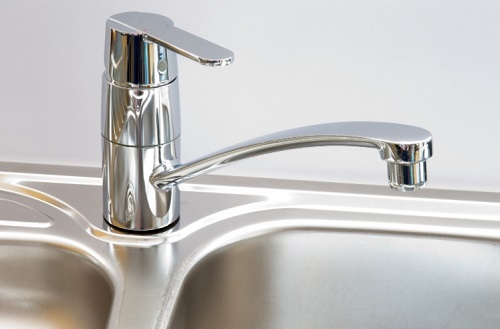A clogged kitchen sink is a common household issue that can disrupt your daily routine. Whether it’s a slow drain or a complete blockage, addressing the problem promptly is essential to avoid further complications. In this comprehensive guide, we’ll walk you through effective DIY methods to unclog your kitchen sink, the tools you’ll need, and when it’s time to call a professional. By following these steps, you can restore your sink to optimal functionality and prevent future issues.

Why Is It Important to Address a Clogged Kitchen Sink Quickly?
A clogged kitchen sink is more than just an inconvenience; it can lead to various problems if not addressed promptly:
Prevents Water Damage: Standing water can cause damage to your cabinets and flooring.
Avoids Unpleasant Odors: Food debris and stagnant water can produce foul smells.
Reduces the Risk of Pipe Damage: Prolonged clogs can lead to pipe bursts or leaks.
Taking immediate action helps maintain your sink’s efficiency and prevent more significant issues down the line.
What Tools and Materials Do You Need to Unclog Your Sink?
To effectively unclog your kitchen sink, gather the following tools and materials:
Plunger: Essential for dislodging minor clogs.
Drain Snake or Auger: Useful for reaching deeper blockages.
Baking Soda and Vinegar: Natural ingredients that can help dissolve clogs.
Rubber Gloves: To protect your hands during the cleaning process.
Bucket: To catch any water or debris that might spill out.
Having these tools on hand will make the unclogging process smoother and more efficient.
How to Identify the Cause of the Clog in Your Kitchen Sink?
Understanding the cause of the clog is crucial for choosing the right solution:
Visible Obstructions: Check for food scraps or grease buildup around the drain opening.
Water Flow: If water drains slowly but still flows, the clog might be partial.
Pipe Noise: Gurgling noises can indicate a clog in the trap or main drain.
Assessing these signs will help you determine the best approach to resolve the issue.
What Are the Best Methods to Unclog a Kitchen Sink?
Here are effective methods to tackle a clogged kitchen sink:
How to Use a Plunger Effectively?
Fill the Sink: Add enough water to cover the plunger’s cup.
Create a Seal: Place the plunger over the drain and press down firmly.
Plunge: Push and pull the plunger rapidly to dislodge the clog.
Check Drainage: Remove the plunger and see if the water drains away.
This method works well for minor clogs and can be your first step in unclogging.
How to Apply Homemade Drain Cleaners?
Prepare the Mixture: Combine 1/2 cup of baking soda with 1/2 cup of vinegar.
Pour into Drain: Add the mixture into the sink drain.
Wait: Let it sit for about 15-30 minutes to break down the clog.
Flush with Hot Water: Rinse the drain with hot water to clear any remaining debris.
Homemade drain cleaners are effective for dissolving grease and minor clogs.
How to Use a Drain Snake or Auger?
Insert the Snake: Place the end of the snake into the drain.
Rotate the Handle: Turn the handle clockwise to advance the snake into the pipe.
Break the Clog: Push through the clog until you feel it break.
Retrieve the Snake: Pull the snake out and remove any debris attached.
A drain snake is ideal for more stubborn clogs located deeper in the pipes.
When Should You Call a Professional Plumber?
While DIY methods are often effective, certain situations may require professional assistance:
Persistent Blockages: If the clog remains after multiple attempts.
Water Damage: Signs of leaks or damage around the sink area.
Unusual Noises: If you hear unusual sounds from the pipes.
A professional plumber can diagnose complex issues and provide long-term solutions.
Conclusion
Unclogging your kitchen sink doesn’t have to be a daunting task. With the right tools and techniques, you can address most clogs yourself and keep your sink functioning properly. Regular maintenance and prompt action are key to avoiding more significant problems. By following this guide, you can ensure a clean and efficient kitchen sink.
FAQs
Can I use vinegar and baking soda to unclog my sink?
Yes, vinegar and baking soda are effective for minor clogs. They help break down grease and debris, making them a great first step in unclogging your sink.
How often should I clean my kitchen sink pipes to prevent clogs?
Regular cleaning every few months can help prevent clogs. Additionally, avoid putting grease or large food scraps down the sink to minimize blockages.
What are the signs that indicate a serious plumbing issue?
Signs include persistent clogs, gurgling noises, slow drainage, or water damage around the sink. These may indicate more severe plumbing issues requiring professional attention.
